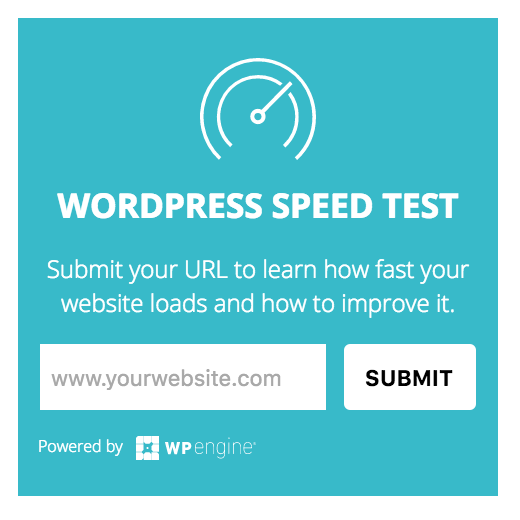Does Website Speed Affect SEO & Search Rankings?

Your website load speed is important for a couple of reasons.
First off, you want to have a fast loading website so your visitors don’t get impatient and leave before you have a chance to tell them how great you are. After all, you worked so hard to get them to click on your website. You don’t want them to leave because your website loads slow do you?
Of course not.
The second reason is because Google and the other search engines are making page load speed a ranking factor.
No matter how much it affects your rankings, it doesn’t matter. You should still focus more on providing your website visitors with the best user experience possible then trying to get better rankings.
Over the next six blog posts, I’m going to go in depth about how to improve web page loading speed. Today’s post will answer the question “Does website speed affects SEO & search rankings?”
Read on and I’ll explain why it does and what factors play a role in page load speed.
SEO or search engine optimization has a lot of moving components and is affected by numerous of occurrences online. Through the years, Google and many search engines strive hard to provide the end-users optimum and useful information online to their fingertips. However, this doesn’t include your content. Search Engine Optimization can also be affected by your website. Among the latest and vital factor of your website strength is the page speed.
Page speed is the extent of time a certain page needs to be totally loaded. Page speed greatly depends on a number of factors, including the host, design and coding. As a matter of fact, load time is important for both search engines and end-users. End-users don’t stay for long on websites that take too long to load and search engine like Google will reprimand your website if it loads too long. Similarly, a fast website converts better.
Why does Google care so much about how fast your pages load?
No doubt, users like fast, convenient websites and so does Google. A site with web pages that load fast leads to good UX or user experience, and a substantial UX results to higher conversion.
In 2010, Google revealed that the speed of a page is a factor that determines a website’s ranking. It pertains to the amount of time that a user has to wait for a page to load up totally. On a regular basis, a website page for e-commerce loads for about seven seconds while the best load time is about three seconds or less.
In fact, a fast site has an affects on the UX of your users. A negative UX e.g. if your users have to wait longer to get what they want can result in revenue loss. These users will close your website instantly. And most of all, a website page that loads too slow is penalized by search engines and can affect your ranking, may it be on a desktop or mobile devices.
In fact, Google compares your website against your opponents on a particular segment and rewards your’s if it’s the fastest. However, be cautious that marks aren’t given separately: it considers the country, network, or device.
How does page load speed impact UX?
- Google has employed page speed in its algorithm as studies revealed that faster website loading time leads to happy users.
- Almost half of users anticipate pages to load within a maximum of 2 seconds.
- A 1-second delay on load speed can reduce conversions by about 7%.
- Studies have shown that 75% of users will not return to a page that loads for more than 4 seconds.
- Shopzilla increased the loading speed of their site and resulted in a 25% rise in page views and about 7-12% increase in revenue.
- A study conducted by Google showed that slowing down the search results page by 100 to 400 milliseconds has a measurable impact on the number of searches per user.
- AOL reported that page load speed can have an affects on page views per visit by a maximum of 50%.
What factors can reduce your page loading speed?
- Your host: You will get what you pay for. Ultimately, a cheap offer can wreak havoc on your loading speed as time goes by. So, make sure to opt for the appropriate host that’s suitable for your business needs.
- Enormous images: Images that takes the time to load can reduce your site speed. It’s sometimes because of extra data embedded in the comments or absence of compression. You must go for PNG files for images that don’t need high details such as logos and JPEG file type for pictures.
- Unoptimized browser, plugins, and app: It is ideal to test your website on all type of browsers because they don’t load the same way. Furthermore, apps such as Flash can greatly decrease loading speed of your page.
- Tons of ads: Many ads can bother site visitors and have the knack to reduce the loading speed of your page.
- External embedded media: External media such as videos are extremely valuable; however, it can reduce the loading speed of your site. To increase loading time, make sure to host your videos on your server.
- Your theme: There are themes that are well-designed and have many affects but can affect the loading speed of your page. Some pre-made WordPress themes for example have lots of coding and are slow to load.
- Widgets: There are comment areas or social buttons that can affect the loading speed of your page.
- Double-barreled code: If you have a HTML/CSS that’s inefficient or too dense, it will decrease the loading speed of your page.
Now that you aware of how website speed affects SEO and search rankings, here are a few places you can test your website speed.

